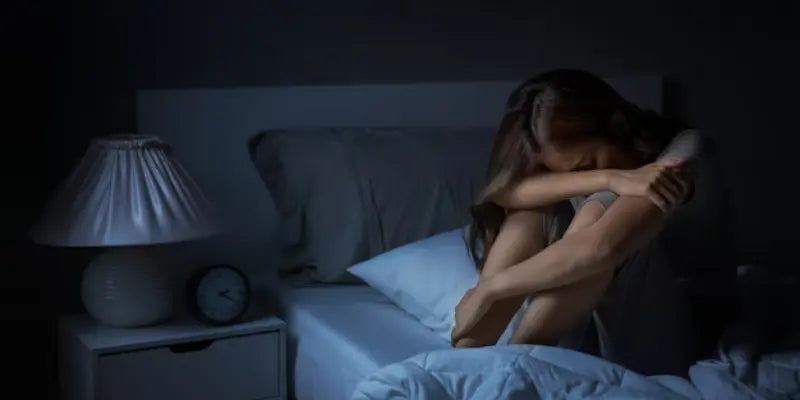
What is Sleep Insomnia?
Sleep is an important part of our daily lives, and it's more than just a "rest" period; it is necessary for our well-being. However, some people often find themselves not being able to get enough sleep. This article discusses the causes of insomnia and how to get rid of it.
What Is Insomnia?
Insomnia is a sleep disorder that causes people to have difficulty falling asleep or staying asleep. It can be caused by a variety of factors, including stress, anxiety, depression, and physical disorders. There are many different ways to get rid of insomnia, and some are more effective than others. Some common treatments include medication, behavioral therapies, and relaxation techniques.
Causes Of Insomnia
Insomnia is a sleep disorder that affects up to 30% of the population. It can be caused by a variety of factors, including environmental factors such as noise and sunlight exposure, psychiatric conditions, medications, and lifestyle choices. Here are some of the most common causes of insomnia:
- Anxiety and stress: Insomnia is often associated with anxiety and stress disorders, which can lead to disrupted sleep patterns.
- Depression: A significant number of people with insomnia also have depression or other mood disorders. This is likely due to the fact that insomnia often co-occurs with other mental health issues, such as anxiety and depression.
- Medications: Certain medications can cause insomnia in some people, including antidepressants and anti-anxiety drugs. Talk to your doctor about any potential side effects of your medication before trying to treat insomnia yourself.
- Sleep apnea: Sleep apnea is a condition in which someone stops breathing during sleep for prolonged periods of time. Sleep apnea can cause difficulty falling asleep, disturbed sleep episodes throughout the night, and chronic fatigue syndrome-like symptoms. If you are experiencing any of these symptoms, talk to your doctor about whether sleep apnea may be causing them.
- Poor sleep hygiene: Poor sleep hygiene includes anything that can interfere with good sleep habits, such as caffeine consumption late in the evening or excessive noise in the bedroom. Improper sleeping habits can lead to difficulty falling asleep, disrupted sleep patterns, and more.
- Circadian rhythm disorder: Chronically disrupted sleep patterns due to a circadian rhythm disorder can lead to difficulty falling asleep and poor sleep quality. This can be caused by things like exercise and caffeine consumption in the evening, as well as exposure to bright light in the morning.
How To Get Rid Of It?
There are several best ways to get rid of insomnia. Try one or more of these methods and see if it helps you get a better night’s sleep:
- Get plenty of rest: One of the best ways to get rid of insomnia is to get enough rest. Make sure to go to bed and wake up at the same time each day, avoid watching television or working on any computer screens in the hours before bedtime, and avoid caffeine and alcohol late in the evening. If you find it difficult to fall asleep or stay asleep, try practicing relaxation techniques like yoga or meditation before bedtime.
- Exercise regularly: Exercise can help improve blood flow and digestion which can help you relax after a long day. If you find that exercise doesn’t help you relax before bedtime, try scheduling your workouts for early morning or evening when your body is already tired.
- Make lifestyle changes: Some lifestyle changes may also help relieve insomnia symptoms such as avoiding caffeine late in the evening, eating a healthy breakfast every morning, getting regular exercise, and getting enough sleep on weekdays as opposed to weekends when people are more likely to be out partying.
- Consider medications: If all other methods fail, consider taking medication to treat your insomnia. There are a variety of medications available that can be effective in relieving symptoms of insomnia. Make sure to speak with your doctor before starting any new medication for sleep.
How to Treat Insomnia with Sleep Therapy?
Insomnia is a sleep disorder characterized by difficulties falling asleep, staying asleep, or maintaining consistent sleep patterns. It can be a chronic problem that requires treatment. Sleep therapy can help people with insomnia to improve their sleep habits and quality of life.
There are many types of sleep therapies available, and each has its own benefits and drawbacks. Some common types of sleep therapy include:
- Cognitive-behavioral therapy (CBT) is a type of psychotherapy that helps people change their thoughts and behaviors around sleeping. CBT may include exercises designed to promote relaxation before bedtime, guidance on setting positive sleep goals, and guidance on avoiding nighttime distractions. CBT is often effective for people with mild to moderate insomnia, but it may not be as effective for people with more severe insomnia.
- Relaxation training is a type of cognitive-behavioral therapy that focuses on learning how to relax the body and mind before bedtime. This includes exercises such as deep breathing, imagery work (imagining relaxing scenes), progressive muscle relaxation (PMR), and meditation practice. Relaxation training may be more effective than CBT for people who have moderately to severely difficulty sleeping.
- Medications are sometimes used to treat insomnia. Common medications used to treat insomnia include antidepressants (such as fluoxetine or sertraline), beta blockers (such as propranolol), stimulants (such as methylphenidate or dextroamphetamine), anticonvulsants (such as gabapentin or pregabalin), and benzodiazepines (such as alprazolam or lorazepam). Some people find that one type of medication is more effective than another, while others find that they need to try several different types of medications before finding the one that works best for them.
- Sleep devices are also used to treat insomnia. These devices include sleep masks, sleep watches, sleep pads, and sleep machines. Sleep devices can be helpful for people who have difficulty falling asleep or staying asleep, but they may not be as effective for people with more severe insomnia.
If you are struggling with insomnia, consider seeking help from a therapist or doctor. There are many different types of sleep therapies available, and each has its own benefits and drawbacks. You may find that one type of therapy is more effective than another, while others find that they need to try several different types of therapies before finding the one that works best for them.
How to Treat Insomnia with a Pillow?
Insomnia is a common sleep disorder that affects around 30% of the population at some point in their lives. It’s characterized by difficulty falling asleep, staying asleep, or waking up in the morning feeling refreshed. Insomnia can be caused by a wide variety of factors, including stress, anxiety, and relationship problems. Insomnia is a sleep disorder that can be difficult to overcome. There are many benefits of using pillows for sleeping, including reducing neck pain, improving sleep quality, and improving breathing.
Neck pain is the most common symptom of insomnia, and it often occurs when people have to keep their heads elevated during the night to avoid snoring. The use of a memory foam pillow can help reduce the amount of pressure on the neck and head, which can relieve neck pain.
Pillows can also improve sleep quality. People who use pillows tend to sleep more soundly and evenly throughout the night. They also experience less tossing and turning and fewer interruptions from nightmares or disruptions in REM (rapid eye movement) sleep. Pillows can also help people breathe better at night. They provide support for the neck, which helps reduce tension in the cervical spine and allows for deeper breathing.
There are a number of different ways to treat insomnia with a pillow. Some people find that using a pillow to prop them up during sleep helps them fall asleep faster and stay asleep longer. Others use pillows to support their head and neck while they sleep so that they don’t have to worry about cervical spine curvature or other neck issues.
Regardless of how you choose to treat your insomnia, always talk to your doctor before starting any new sleep habits. He or she can help you figure out which approach is best for you and prescribe the necessary medication or treatments.
Conclusion
If you're like most people, you've probably been told that insomnia is a common problem and there's not much that can be done about it. But the truth is, there are many different ways to get rid of insomnia, and all of them are worth trying. In this article, we have discussed the three major causes of insomnia and have given you some tips on how to overcome them. From dietary changes to supplementing your sleep schedule, there are plenty of methods out there for getting your quality sleep again. So don't wait any longer — start solving your sleep problems today!








